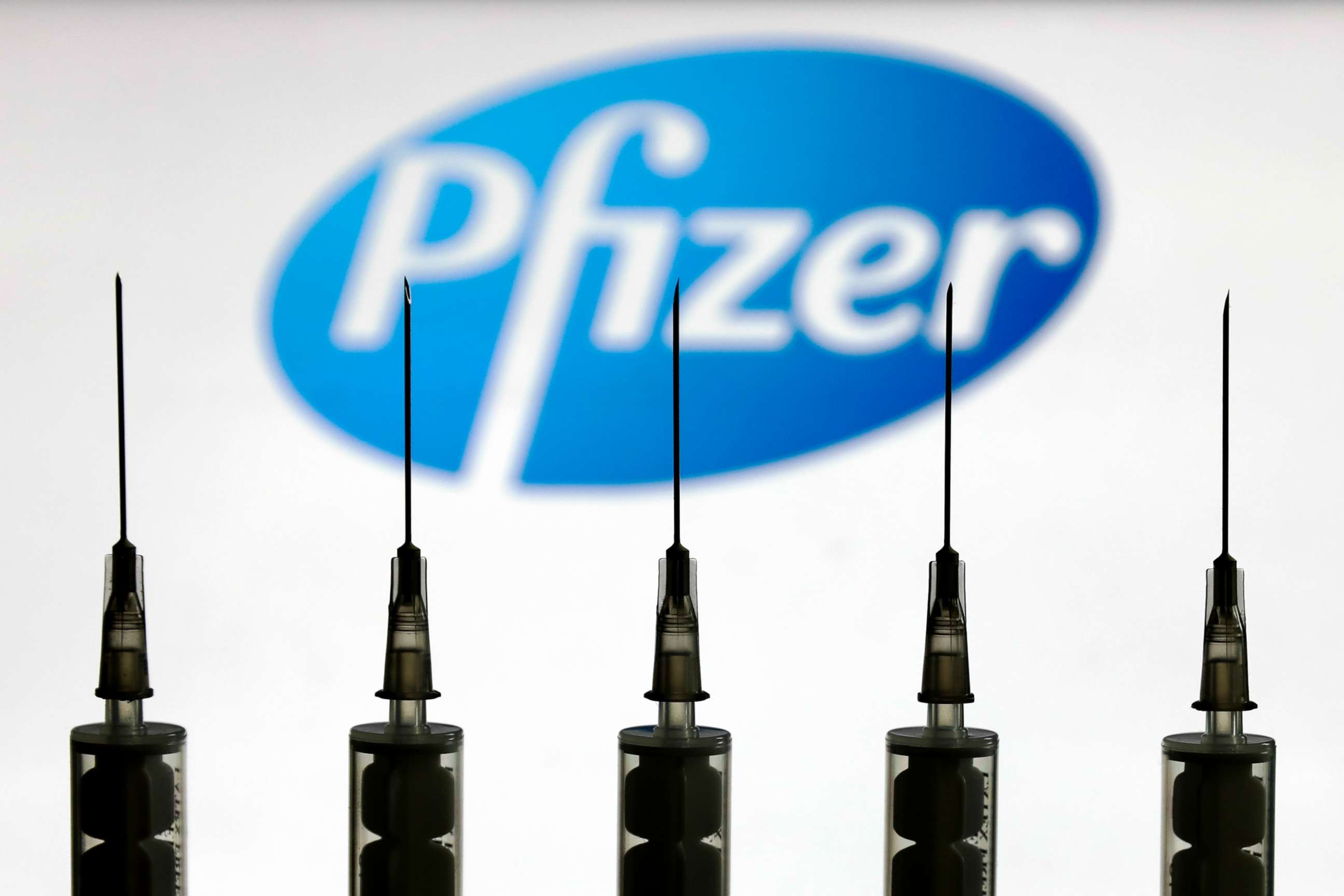Highly anticipated COVID-19 vaccine data from Pfizer unlikely to come before Election Day: CEO
"This will not be a Democratic vaccine or Republican vaccine."
Pfizer executives said in a third-quarter investor presentation on Tuesday they have not seen the first interim efficacy data yet. The Data Monitoring Committee, an independent group of experts monitoring the clinical studies and the data collection, "has not conducted any interim efficacy analyses to date," according to Pfizer.
The slight delay from an earlier prediction of data by the end of October means results will likely not be known by Election Day, despite claims by President Donald Trump for months that a vaccine is "weeks away."
The Data Monitoring Committee has thresholds for review that are triggered when a certain number of trial volunteers become sick with COVID-19. The first interim analysis is scheduled to happen when 32 people develop COVID-19, according to Pfizer's extensive clinical trial protocol.
Bourla said, however, the company is still on track for a November application for authorization, if the vaccine shows to be effective and, just as importantly, safe.
Pfizer CEO Albert Bourla had previously said the company "may know whether or not our vaccine is effective by the end of October."
Once there are 32 volunteers infected with COVID-19, Pfizer will analyze how many of them received the vaccine and how many received a placebo. If more than 76.9% of the grouping is in the placebo group, Pfizer will consider the vaccine efficacious.
Once an independent review board releases information on the trials, the company will need a week to review it internally, Bourla said.
Pfizer plans to release the interim data if it is negative (worse than 11.8%) or positive (better than 76.9%) for efficacy. If the data is somewhere in between, Pfizer will wait for more conclusive results, Bourla said.
"In case of a conclusive readout, positive or negative, we will inform the public as soon as we complete the necessary administrative work, which we estimate to be completed within one week from the time we know," he explained to investors, adding that the company "reached the last mile here and we expect these things will start coming soon, so let's all have patience."
He said he is "cautiously optimistic" the vaccine will work based on earlier studies.

Pfizer said it expects efficacy and safety data will be available in November, and if it is, it will apply for emergency use authorization.
Pfizer's vaccine candidate was also developed with the German biotech firm BioNTech. There are 150 clinical trial sites around the world.
More than 42,000 participants have been enrolled and nearly 36,000 have received a second dose of the vaccine. Expanding the number of participants has allowed trials to include additional populations, among them children between 12 and 18 and people with preexisting conditions.
When asked about manufacturing and supply, Bourla said Pfizer's contract with the U.S. government is to produce 100 million doses by March. Forty million doses could be available in the U.S. by year-end if the Food and Drug Administration authorizes the vaccine, which means that 20 million people can be immunized, most likely high-risk individuals like health care providers and the elderly.
Bourla also pledged transparency with the data, reminding investors that the company has not taken money from the government in order "to stay out of politics." Pfizer, along with the other pharmaceutical companies developing vaccines, have pledged to uphold the integrity of the scientific process.
"This will not be a Democratic vaccine or Republican vaccine; this will be a vaccine for the world," he said.
ABC News' Teri Whitcraft and Sony Salzman contributed to this report.




